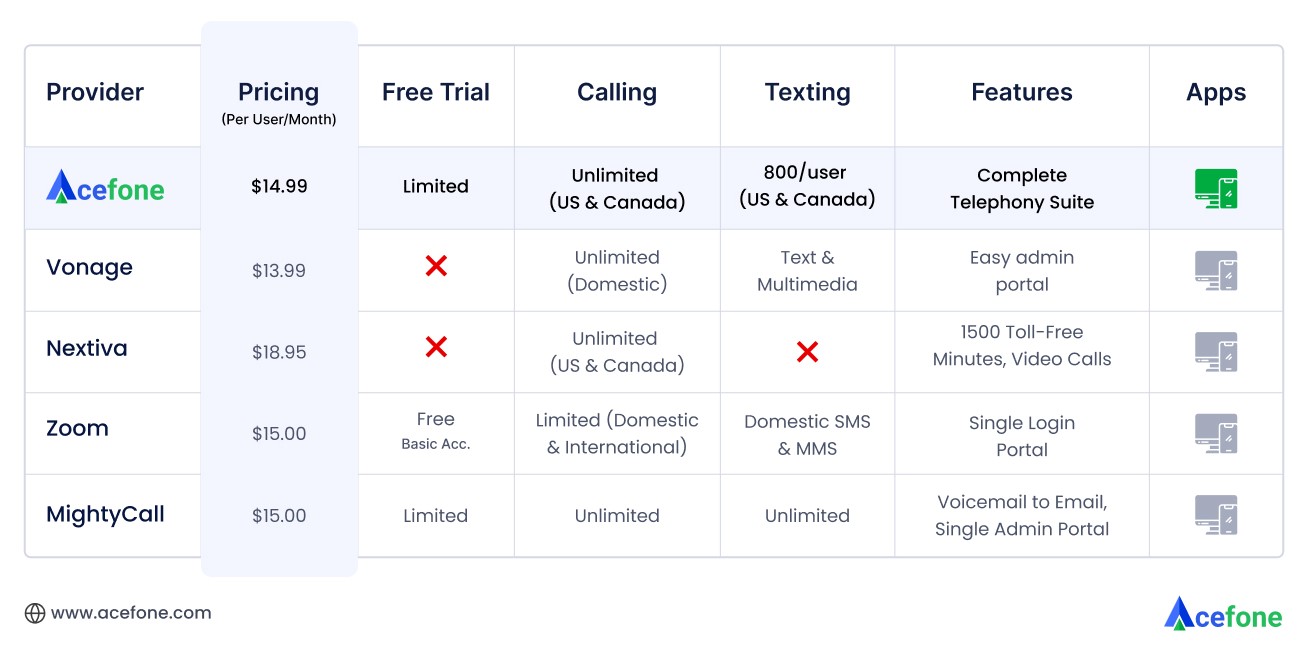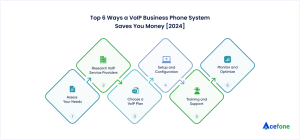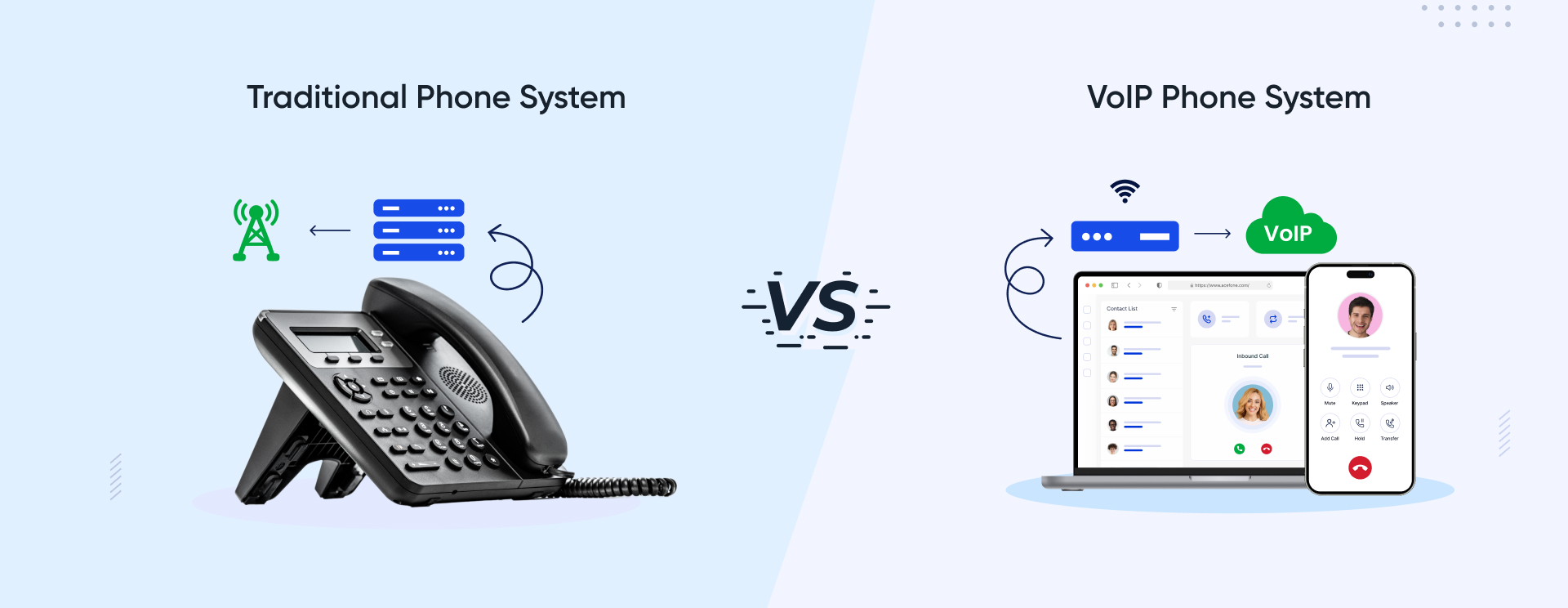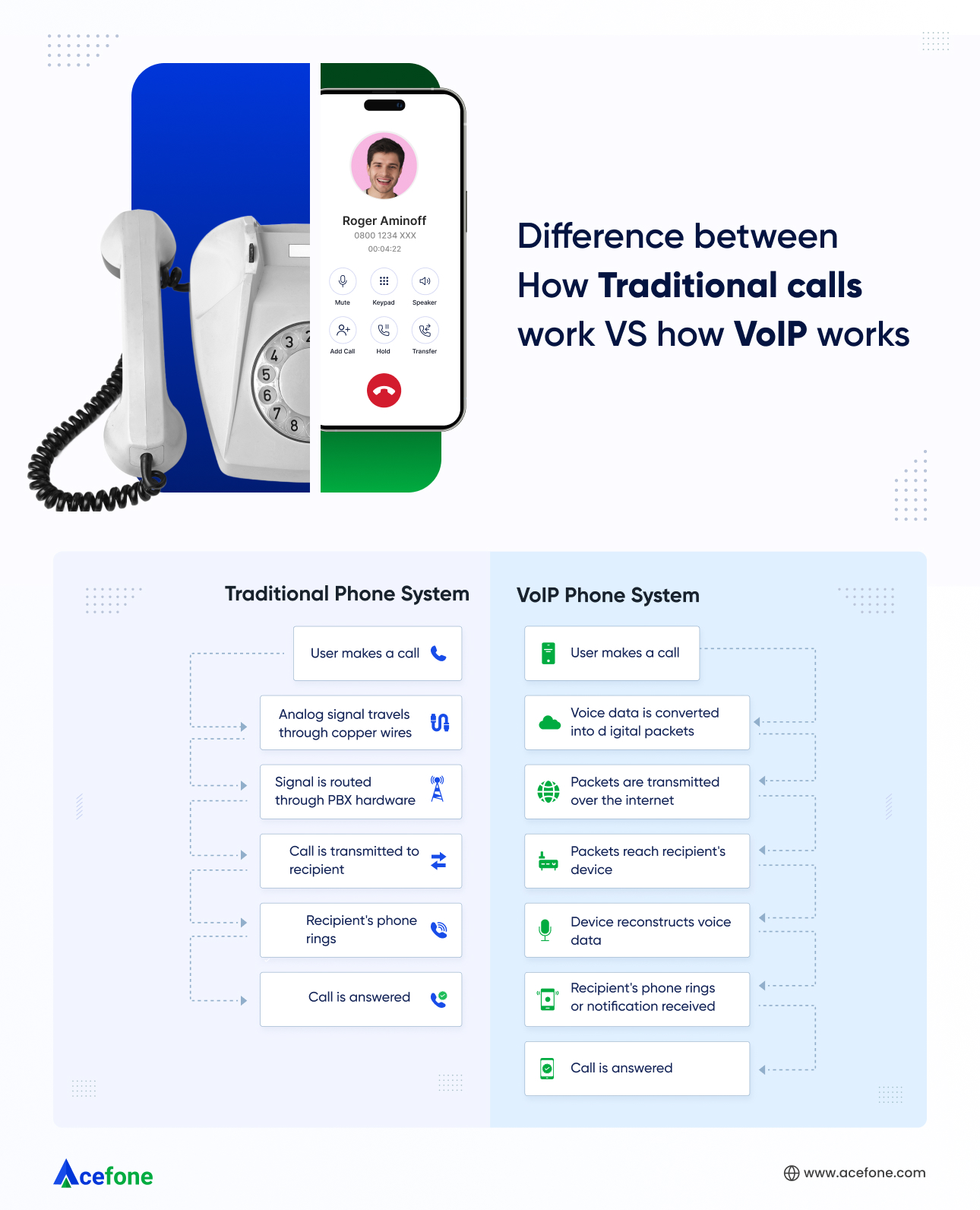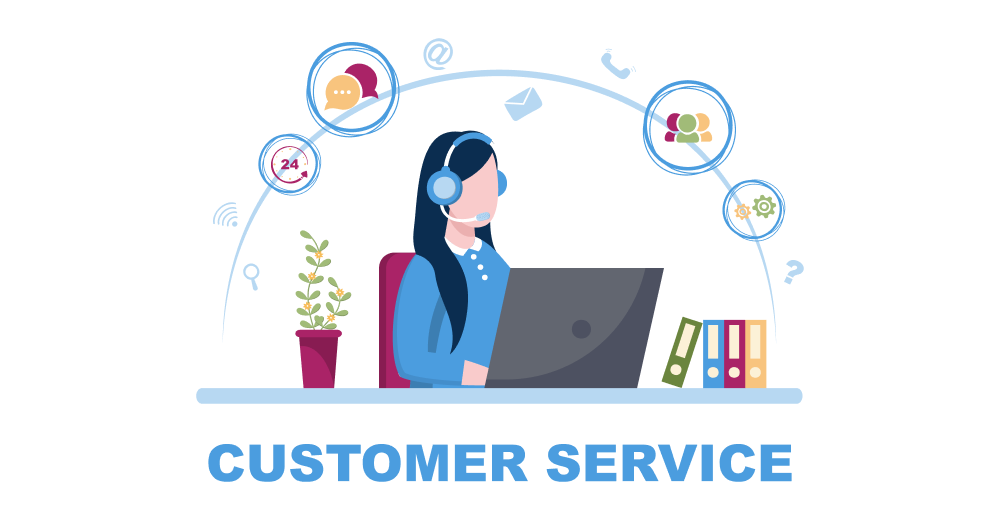The world’s first Telecommunication agency came into existence on May 17th. Since then, this date has been celebrated as World Telecommunication & Information Society Day (WTISD). It marks the foundation for the idea of a more connected world.
Many technological enhancements have been made to achieve this objective, and VoIP is the latest on the list. VoIP has deeply grown into the global market, assisting businesses from every industry.
Thousands of companies today have invested in VoIP phone services for high-quality communication within their teams and with customers. Yet many still lack familiarity with VoIP technology.
To those wondering “What is a VoIP Phone Service and how does it work?”, this blog is for you.
What is VoIP Phone Service?
VoIP Phone services are internet-based communication services that allow you to make and receive phone calls without using traditional phone lines. Based on the Voice over Internet Protocol (VoIP) technology, they offer five times the features, flexibility, and scalability at a fractional cost of traditional phone services.
It’s not surprising to find that industries all around the world are switching over to VoIP. It uses a wider frequency range for data transmission, giving VoIP calls superior quality than traditional calls. You can make calls from any device (desktops, laptops, and tablets) as long as it has an internet connection.
Check it out: What is a VoIP Phone System?
How do VoIP phone systems work?

To get a strong understanding of how VoIP phone system work, let’s look at an example.
Imagine calling your mother using a VoIP application. In that process, your voice goes through the following phases:
Step 1: The Microphone captures your voice
Step 2: ADC chops it into small data packets.
Step 3: The data packets are compressed for faster travel.
Step 4: The data packets travel over the Internet using IP.
Step 5: The DAC at your mother’s end deciphers the data packets back into electrical signals.
Step 6: Your mother’s phone speaker converts those signals into your voice.
We’re now going to dissect this process further to ensure you are fully aware of the intricacies of VoIP phone systems.
Step 1: Voice Capturing
Your voice acts as an analogue wave, moving from your mic to the speaker on the other end. Before it reaches the other end, the VoIP phone’s mic converts them into electrical signals.
Step 2: Breaking Your Voice
The electrical signals are long linear waves, which the Analog-to-digital converter (ADC) chops into data packets. Each packet consists of a chunk of your voice information.
Step 3: Compressing Data Packets
In the third stage, VoIP shrinks the data packets, making them tiny and fast to travel across the Internet at a higher speed.
Step 4: Transmitting Data
Using Internet protocol, tiny data packets containing your voice signals travel the Internet alongside emails and other data. These data packets travel at high speed, reaching the recipient faster than regular phone signals.
Step 5: Decoding the Message
Once the packets reach the receiving end, the ADC converts them back to electrical signals. The speaker then converts these signals back into sound signals, playing your voice for the recipient.
Bonus Fact
Throughout their journey, the data packets containing your voice signals undergo a quality control check. If they are found lost or damaged, the error correction codes rectify them to ensure you get high-quality voice signals.
VoIP Phone vs Landlines- Which is better for your business?
In the modern world, VoIP phone systems are a better business option than traditional landline systems. From setting up to making calls, VoIP phone services are easier to maintain and operate. We have laid out the distinctions between the two for your clarity:
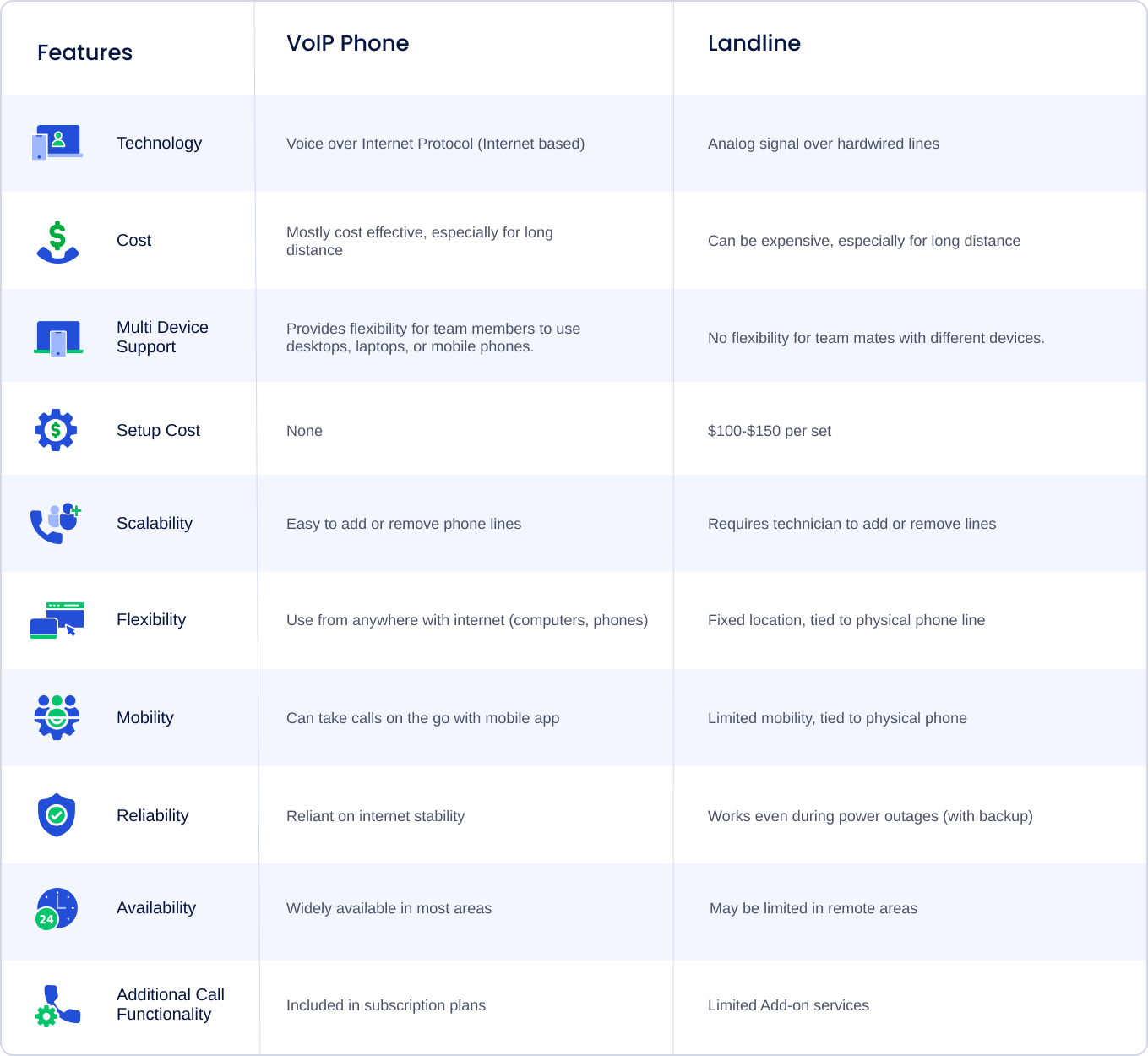
Common VoIP Challenges Businesses Might Face
Despite providing its users with several advantages and comforts, VoIP can occasionally encounter challenges. If you’re planning to get a VoIP phone system for your business, you must familiarize yourself with the common challenges and learn how to fix them.
Call Quality Issues
The call quality of any VoIP call relies on your broadband and internet service provider. To experience high-quality conversations, you must have a stable and high-speed internet connection. Low bandwidth and unstable internet connections can lead to poor call quality, dropped calls, noise and latency issues.
Security Concerns
VoIP phone systems are often victims of cyber threats such as eavesdropping, toll fraud, and denial-of-service attacks. Therefore, fortifying your VoIP services becomes a crucial step to safeguard your business information. To achieve this, look for VoIP providers with multi-layered network firewalls and data encryption to filter the VoIP traffic.
Dropped calls
A call drop during a critical business call can be devastating for anyone. Dropped calls are one of the most common challenges VoIP users face. Enterprises with large call volumes are prone to experiencing such issues quite often. To avoid this, Unitedworld Telecom recommends ensuring that your VoIP phone system and all the hardware involved are up to date with the current version.
Echo/feedback
Feedback or an echo during a VoIP call is yet another common VoIP phone system issue that is caused by network latency or bandwidth issues. Any network instability can cause the voice on an active call to echo over the other person’s end. Avoid using wireless or multiple speakerphones to prevent your voice from travelling through additional disruptions. Test the headset and internet connection being used for VoIP calling.
Phone Not Ringing on Call
Are you missing calls from customers and team members because your VoIP phone doesn’t ring? It is straightforward: Your calls are forwarded to voicemail instead of ringing the assigned user. This VoIP problem has an easy fix. You must ensure your devices are registered on your VoIP phone system and by the VoIP service provider. Lastly, remember to check whether the devices are on DND and follow the defined call forwarding settings.
Learn more about Common VoIP Problems & How to Fix Them here.
Takeaway
Today, we celebrate World Telecommunication and Information Society Day and the advancements bringing our world closer together. VoIP phone services are a key example of technological advancement, offering global businesses a powerful alternative to traditional landlines. VoIP’s cost-effective, feature-rich, and flexible nature allows calls from anywhere with an internet connection.
With this blog, we aim to teach you how VoIP works and address some common challenges that businesses might face. Our goal is to empower you to embrace the future of communication with VoIP.










